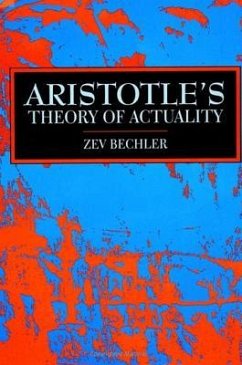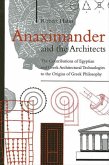An attack on Aristotle showing that his misplaced drive toward the consistent application of his actualistic ontology (denying the reality of all potential things) resulted in many of his major theses being essentially vacuous This is an attack on Aristotle showing that, after his revolt against Plato's separate ideas, he formulated his actualistic ontology denying the reality of all potential things and holding that only actual things are real. In a misplaced or mistaken drive toward consistency, Aristotle then applied this ontology to other areas of his philosophy with the result that many of his major theses are essentially vacuous When applied in his physics, this led to the view that all natural motions are uncaused and therefore self-explanatory. Related consequences were Aristotle's physical indeterminism, holism, and the true meaning of his teleology and theory of god. In his logical theory Aristotle presented a system of empty explanations and argued that these are the only scientific explanations possible. Since mathematics appears to deal with non-actual entities, Aristotle formulated an actualistic theory of mathematics, leading to the first notion of a universal mathematics. This book shows how actualism served as the foundation of an anti-informationist philosophy of nature, science, logic, and mathematics. These consequences make Aristotle's actualism the natural framework for twentieth-century science and its philosophy.
Bitte wählen Sie Ihr Anliegen aus.
Rechnungen
Retourenschein anfordern
Bestellstatus
Storno


